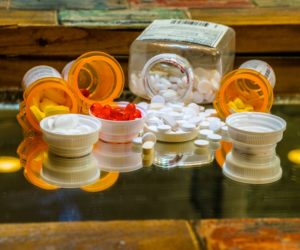Commonly Abused Prescription Drugs

Find out the facts about the most commonly abused prescription drugs and their effects on adults and teens
Prescription drugs abuse is an ongoing problem in the United States, affecting more than 20 percent of Americans at some point in their lives. The Centers for Disease Control and Prevention (CDC) lists prescription drug abuse as the fastest growing drug problem in the United States. According to the latest figures from The National Institute on Drug Abuse, more than 54 million people have used prescription drugs for non-medical reasons at some point in their lifetime, and more than 5,000 people begin abusing prescription drugs every day. To better understand the scope of the problem, we need to take a close look at the most commonly abused prescription drugs to see who is abusing them and why.
Prescription drug abuse facts
The most commonly abused prescription drugs are opioids, central nervous system depressants, and stimulants. Deaths from prescription drug-related overdoses are higher than deaths from any other drug, and are higher than heroin and cocaine overdoses combined. Young adults aged 18 to 24 have the highest rates of prescription drug abuse, and they are also the segment of the population most likely to suffer the deadly consequences of prescription drug abuse.
Opioids
Opioid medications, including OxyContin, Fentanyl, Vicodin, Percocet, and Codeine, are prescribed to treat pain and are typically abused for the euphoria they cause. Opioids account for the largest share of prescription drug abuse in the United States. Painkillers are abused by 5.1 million Americans annually, and it is estimated that more than 2 million people have substance abuse disorders related to prescription opioid medications. Prescriptions for opioid painkiller medications have skyrocketed in recent years, and many people now suffering from opioid addiction became addicted when taking the drug as prescribed. These individuals often abuse opioids to avoid the painful symptoms of withdrawal. There are now record numbers of opioid addicts in the US and the country is struggling to deal with an epidemic of opioid-related overdoses and deaths. From 2014 to 2015, the death rates from synthetic opioids other than methadone increased by 72.2%.
CNS Depressants
Central nervous system depressants, which include benzodiazepines (Valium, Klonopin, Xanax, Halcion), non-benzodiazepine sleep medications (Ambien, Lunesta), and barbiturates (Nembutal, Luminal), are abused by 2.2 million people in the US every year. CNS depressants slow brain activity, producing a calm, drowsy, and euphoric feeling that makes them popular drugs to abuse.
Stimulants
Prescription stimulants, which include Adderall, Ritalin, and other amphetamines, are generally prescribed for attention deficit hyperactivity disorder (ADHD) and narcolepsy. Prescription stimulants act on the same neurotransmitter systems that cocaine does, increasing alertness, attention, and energy levels. It is estimated that 1.1 million people abuse stimulants annually in the United States. Many students in high school and college abuse stimulants in an effort to improve their ability to study long hours and enhance their scholastic performance. Other abuse of stimulants is related to weight loss.
Teenage prescription drug abuse
Prescription drug abuse begins early. Because prescription drugs are so widely used and easy to divert, prescription medication and over the counter (OTC) drugs rank as the most commonly abused drugs by teens, after marijuana and alcohol. According to the Monitoring the Future study, 12 percent of twelfth graders abused some prescription drugs in 2015. The prescription drugs most commonly abused by twelfth graders are:
- Amphetamines
- Adderall
- Vicodin
- Tranquilizers
- Sedatives
- Cough Medicine
- OxyContin
- Ritalin
If you or a loved one is suffering from prescription drug abuse, treatment in an accredited addiction rehab program can help you overcome your addiction. You can undergo medically assisted detox to alleviate the symptoms of withdrawal, and receive extensive therapy to learn relapse prevention strategies that will vastly improve your chances of achieving long-term recovery success.
If you or a loved one needs help with abuse and/or treatment, please call the WhiteSands Treatment at (877) 855-3470. Our addiction specialists can assess your recovery needs and help you get the addiction treatment that provides the best chance for your long-term recovery.
